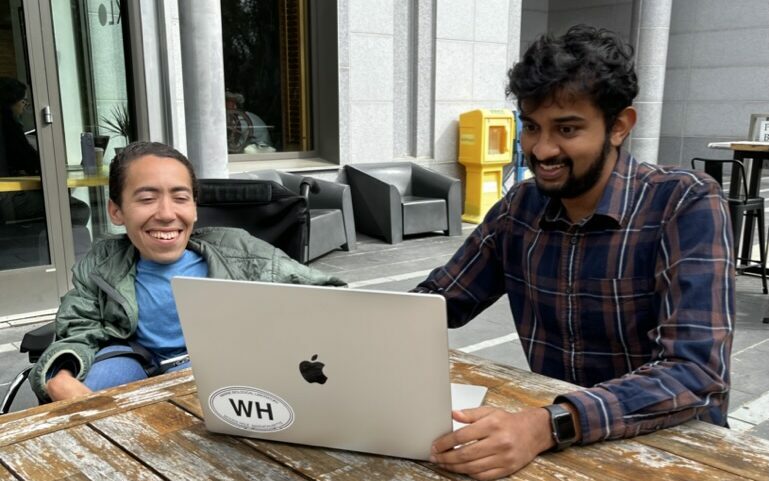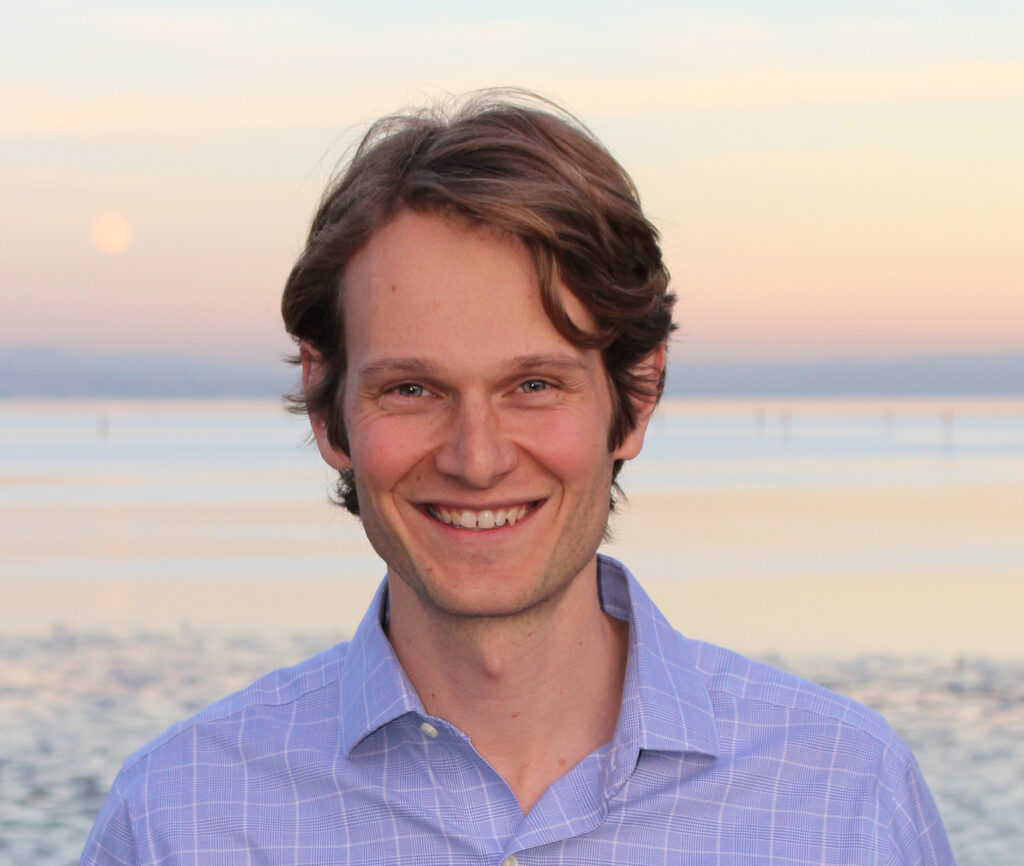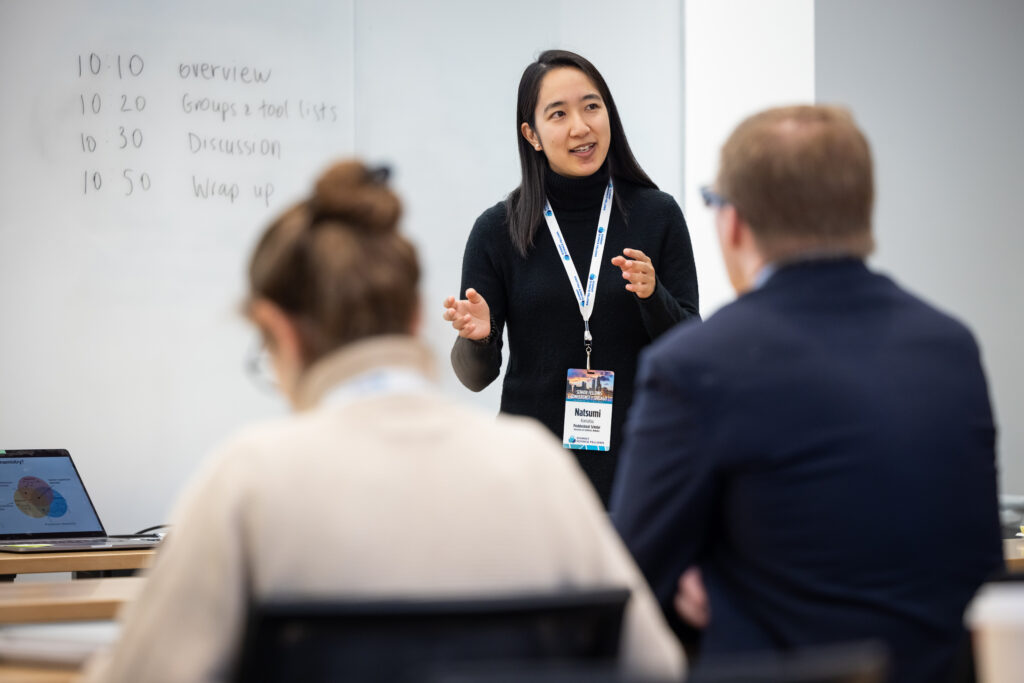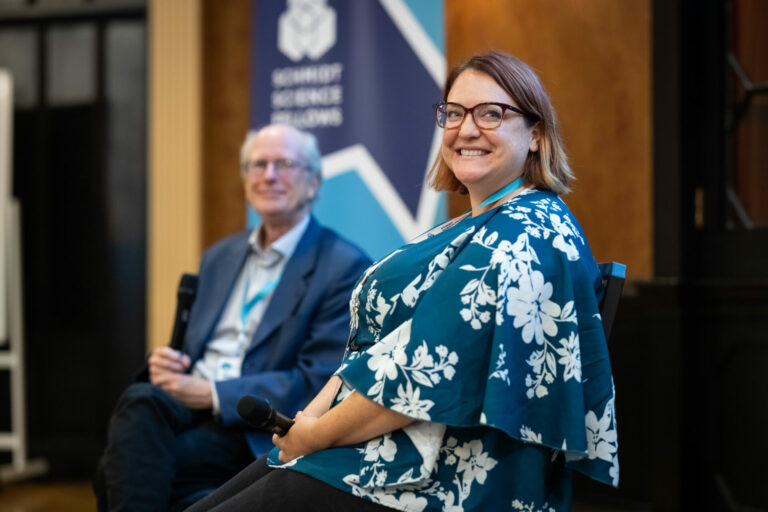Understanding how cancer evades detection and exploring Antarctic ice sheet stability are among the issues being tackled by new interdisciplinary collaborations, supported by Schmidt Science Fellows.
Now in its second year, the Catalyst Grant Scheme supports our Senior Fellows to come together to pursue shared ideas, harnessing the transformative power of fusing different scientific disciplines.
Five new projects have been funded with the potential to contribute to immune cell understanding, cancer therapies and diagnostics, novel material discovery, sea level prediction, and protecting ocean ecosystems.
Tackling the world’s biggest challenges requires a different approach. It will require us to bring scientific disciplines together to create novel ways of thinking and develop creative solutions.
Schmidt Science Fellows Director of Fellowship Affairs & Lifelong Community Arielle Baker said: “Tackling the world’s biggest challenges requires a different approach. It will require us to bring scientific disciplines together to create novel ways of thinking and develop creative solutions. We need to create a research environment that fosters this interdisciplinary science, creating the space for new ideas and collaborations to form.
“To do this, we encourage our Fellows to take risks and build community as they carry out their Fellowship Research Placements. Our Catalyst Grants provide follow-on support which helps them to pursue new projects that emerge from discussions at Senior Fellow events or from their initial placement research.”
The five 2023 Senior Fellows Catalyst Grant projects are:
Investigating the Interplay Between Innate Immune Cell Behavior and Extracellular Matrix Mechanics
2020 Fellows, Dr. Ben Winer, Memorial Sloan Kettering Cancer Center and Dr. Callan Luetkemeyer, University of Illinois Urbana Champaign
Dr. Luetkemeyer and Dr. Winer aim to understand how cancer cells evade detection by immune cells by altering tissue microstructure and mechanics. The project combines techniques and ideas ranging from immunology and cell/extracellular matrix biology to mechanics of polymers and image-based modeling. Long-term, it has the potential to guide the development of new cancer therapies and diagnostic technology.
How to Traverse Chemical Space? Insights from Automated Scientific Discovery in Computational Neuroscience
2021 Fellows, Dr. Sebastian Musslick, University of Osnabrück and Dr. Suhas Mahesh, University of Toronto
Dr. Musslick and Dr. Mahesh will apply innovative techniques from computational neuroscience to automate the search for new energy materials. Leveraging Dr. Musslick’s work on transforming discrete graphs into continuous, low-dimensional spaces, they aim to develop machine learning algorithms that can efficiently and interpretably screen potential materials. This approach holds the promise of expediting the discovery of novel materials for applications in solar cells, catalysts, and LEDs.
Emergent Mechanosensation in Immune Cell Behavior
2019 Fellow, Dr. Ahmad Omar and 2020 Fellow, Dr. Deepak Krishnamurthy, University of California, Berkeley
Dr. Krishnamurthy and Dr. Omar plan to use tools from nonequilibrium statistical physics to understand how immune cells sense the mechanical properties of their target, which in turn bias key immune cell behaviors. The work has the potential to provide insight into the behavior of key immune-target interactions in the context of diseases like cancer, as well as push the boundaries for our understanding of how cells sense and integrate mechanical signals in general.
Quantifying the Impact of Mantle Heat on Future Antarctic Ice Sheet Stability
2018 Fellow, Dr. Frederick Richards, Imperial College London and 2019 Fellow Dr. Aleksandr Montelli, University of Cambridge
Dr. Richards and Dr. Montelli plan to combine their work in glaciology and deep Earth geophysics to better understand the stability of the Antarctic ice sheet and narrow the huge associated uncertainty in projections of future sea level rise. This work will integrate glaciological data with new estimates of heat transport from the Earth’s mantle to the ice sheet’s base, allowing its past extent to be reconstructed with greater precision. They aim to use these reconstructions to validate next-generation ice-sheet models that can predict the fate of the Antarctic ice sheet with far greater accuracy than is currently achievable.
Identifying Gorgonian Resistance to Climate Change
2019 Fellows, Dr. Asja Radja, Bryn Mawr College and Dr. Rebecca Sherbo, Northeastern University
Dr. Radja and Dr. Sherbo are continuing their work from last year’s Catalyst Grant funding on understanding the mechanism leading to the resilience of soft corals in warming oceans due to climate change. They are combining physical and mathematical modeling with microbiology and examination of the microbiota of soft corals. They have developed methods for laboratory growth of corals and identification of the species in the microbiome and are now extending their work to the field by studying corals in Bermuda reefs.
Schmidt Science Fellows undertake a 12 to 24 month postdoctoral placement. Fellows’ placements represent a significant disciplinary pivot from their PhD focus and are central to the Program’s mission to foster greater interdisciplinarity.
On completion of their placement and Fellowship training, Fellows progress into our Senior Fellows community where they get access to ongoing programming and support.
Catalyst Grants support Senior Fellows to pursue projects emerging from their Fellowship Research Placements and discussions with other Fellows, building a strong cross-cohort community.
With two years of Catalysts Grants funded, we have supported 18 Senior Fellows over 10 grants, with a total investment of almost $100,000 and bringing diverse disciplines together to address challenges from drug screening to ocean habitat preservation.



